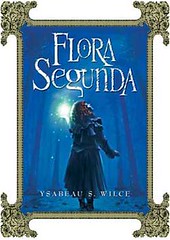San Francisco, where Madama Wilce is currently soaking up sunshine and cocktails, is without question a great city, but there are certain advantages to living in le Grande Pomme even in the very midst of winter: to wit, the theater. Where, last night, I saw an incredible performance of Orson Welles's Moby Dick -- Rehearsed.
Apparently, in the fifties, around the time that he played Father Mapple in the John Huston-directed film of Melville's classic novel, Welles became obsessed with the idea of adapting Moby Dick for the stage, and starring in the same (no, not as the great white whale, as the snarky-minded among you were thinking -- shame on you!): that is the version I saw last night, performed by Twenty Feet Productions.
According to the review in the New York Times, Welles, still later in life, recorded excerpts of theatrical readings of the novel, some of which can be found on YouTube -- with subtitles in Italian, bizarrely enough -- but these give some sense of the power Welles would have brought to the role of Ahab. (Well, okay, maybe not that much power!)
The play is actually a "play within a play," as the actors are gathered to do a reading of King Lear, and only incidentally, it seems, take up an adaptation of Moby Dick prepared by the son of the theatrical troupe's somewhat megalomaniacal "governor," who reserves the role of Ahab for himself. The linking of Lear and Moby Dick is an inspired one, for of all American novels that I know, Moby Dick is the most Shakespearean in the reach of its language and drama, and Welles's adaptation, running about two hours with a 15-minute intermission, is astonishingly seamless. The play is running through March 25, so there's still time for New Yorkers to see it.
Watching, it occurred to me how much of the structure of a classic horror novel or movie is there in Moby Dick, and it struck me forcefully that if Poe is one forefather of the horror genre in this country, then Melville must be another.
The cosmic horror that Melville introduced in parts of Moby Dick seems to me to be the abiding characteristic, distilled and purified, of Lovecraft's fiction. And in fact, I've been thinking a lot lately that Lovecraft is turning out to be this decade's P.K. Dick; that is, more and more his peculiar insights seem to capture, for increasing numbers of people, aspects of the world in which we are living today, just as Dick's work did for people in the nineties. I'm not sure what this means, but it's kind of scary.
It also occurred to me that Moby Dick would make a terrific musical! But it seems I'm not the first to come up with this idea. "Thar she blows" indeed!
Sunday, March 18, 2007
Subscribe to:
Post Comments (Atom)











No comments:
Post a Comment